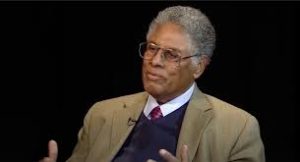Precautionary Principle and Lockdown Love
Already in March 2020, economists considered lockdowns to be worthwhile. Their reasoning was a glorified version of the precautionary principle. Several research teams
quantified how large the economic damage would have to be for lockdowns to be beneficial on net. Using epidemiologists’ guesses of how many lives lockdowns might save, these analyses calculated the dollar value of the life years saved by lockdowns.
In the early days of the epidemic, there was fundamental scientific uncertainty about the nature of the virus and the risk it posed. Faced with this uncertainty, many economists (joining other scientists less well trained in thinking about decision-making under uncertainty) adopted a peculiar form of the precautionary principle. The implicit counterfactual exercise in these analyses took at face value the output from compartment models with
dubious assumptions about critical parameters, such as the infection fatality rate from the model and compliance with lockdown policy. Unsurprisingly, these early analyses concluded that lockdowns would be worthwhile, even if they were to cause extensive economic disruptions.
Applied to the COVID crisis, the precautionary principle says that when you have scientific uncertainty, it may make sense to assume the worst-case about the biological or physical phenomenon you want to prevent. This is what the early economic analyses of lockdowns did by taking at face value the early estimates produced by epidemiological models (such as the Imperial College Model) of alarming COVID deaths in the absence of lockdowns.
The idea was that since we do not know with certainty, for instance, about the infection fatality rate, immunity after infection, and the correlates of disease severity, it is prudent to assume the worst. Therefore, we must act as if two or three out of a hundred infected people will die; there is no immunity after infection; and everyone, no matter what age, is equally at risk of hospitalization and death after infection.
Every one of these extreme suppositions turned out wrong, but of course, we could not have known that with certainty at the time, although there was already some evidence to the contrary. Scientific uncertainties are notoriously hard to resolve in advance of the time-consuming scientific work to resolve them, so maybe it was prudent to assume the worst. Unfortunately, fixating on the worst-case scenario then spurred long-lasting unfounded fears among the public and economists.
This all sounds very reasonable, but there was a curious asymmetry in the application of the precautionary principle in these analyses. With the benefit of hindsight, it should be clear that this application of the precautionary principle to the uncertainties of March 2020 was shockingly incomplete.
In particular, it was not reasonable to assume the best case about the harms from the interventions you want to impose while at the same time accepting the worst case about the disease.
There are harms from the lockdown policies that any responsible economist should have considered before deciding that lockdowns were a good idea even then. A consistent application of the precautionary principle would have considered the possibility of such collateral lockdown harms, assuming the worst as the principle dictates.
In the panic of March 2020, economists assumed the best about these collateral harms. They adopted the implicit position that the lockdowns would be costless and that there was no other choice but to enforce lockdowns, at first for two weeks and then for as long as it might take to eliminate community disease spread.
Under these assumptions motivated perhaps by a curiously asymmetric application of the precautionary principle, economists stayed silent while governments adopted lockdown policies wholesale.




